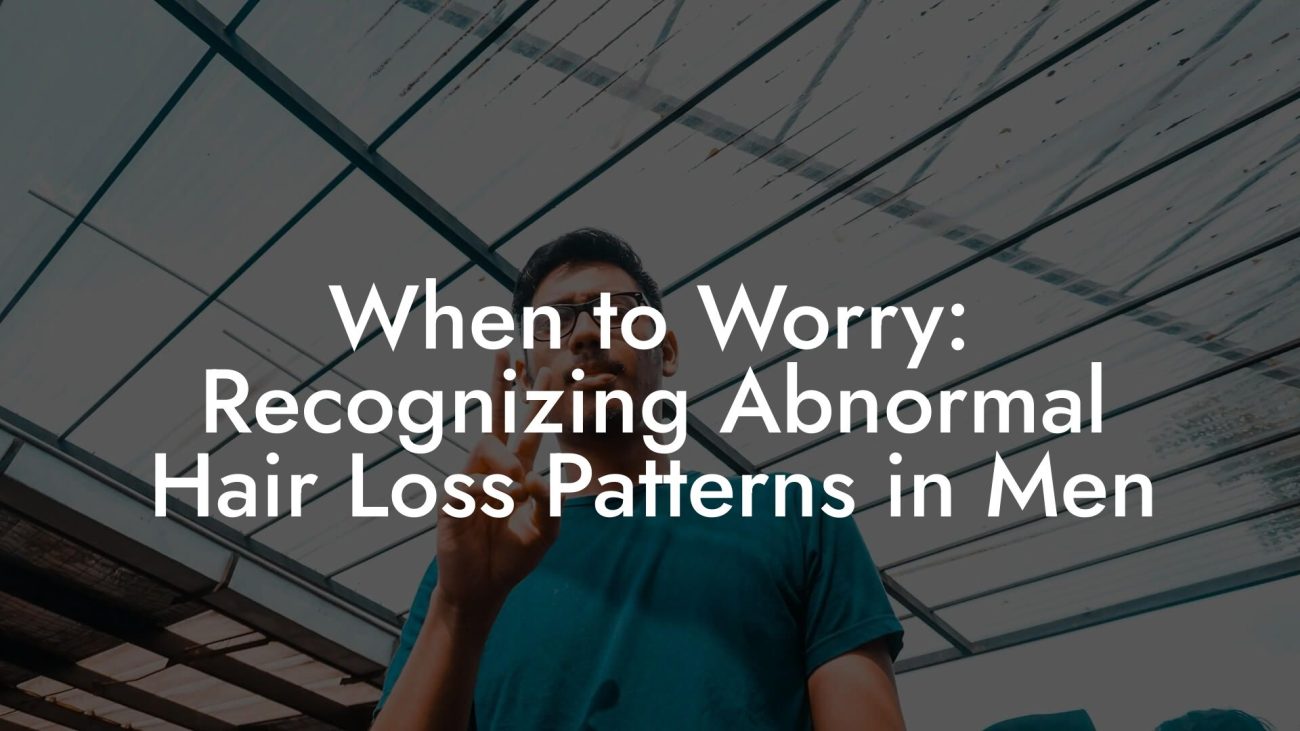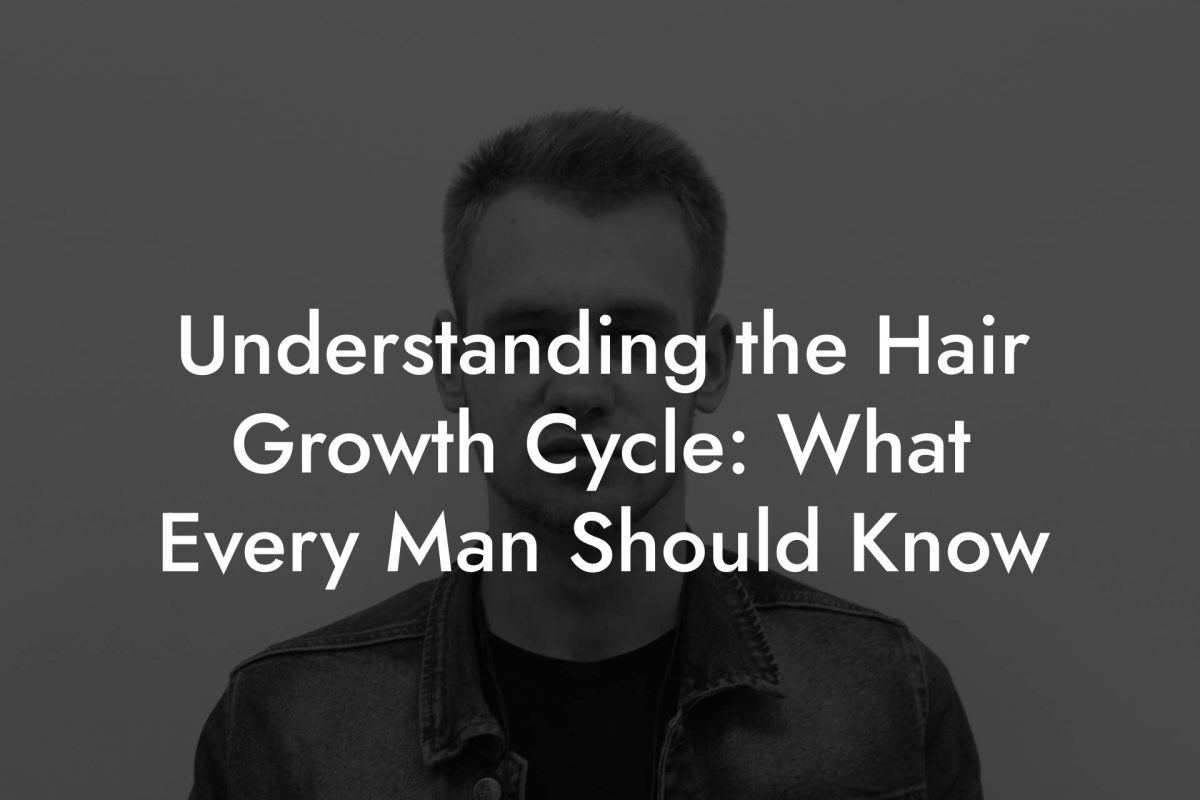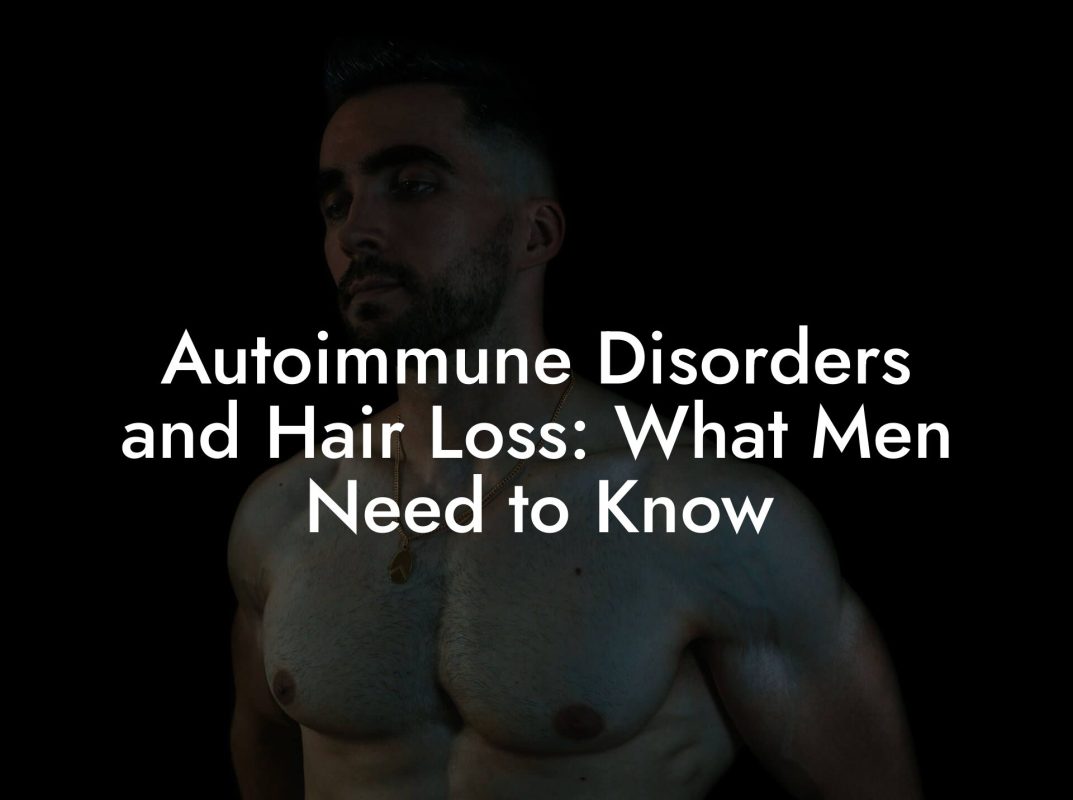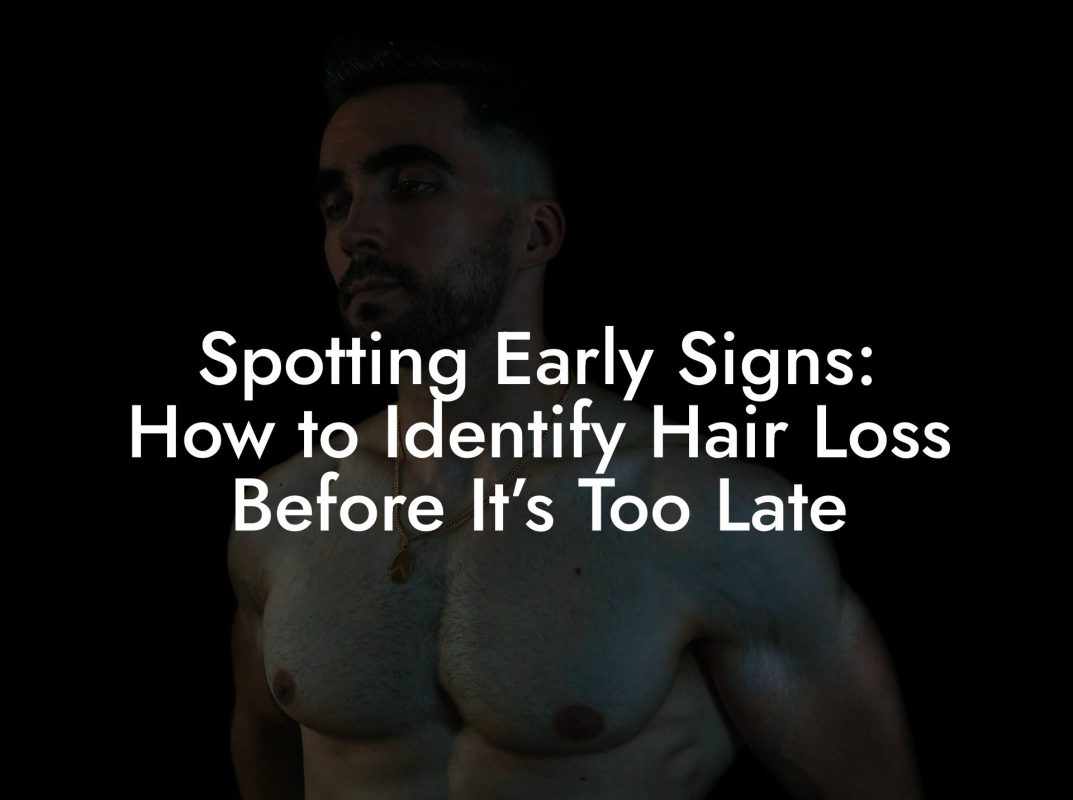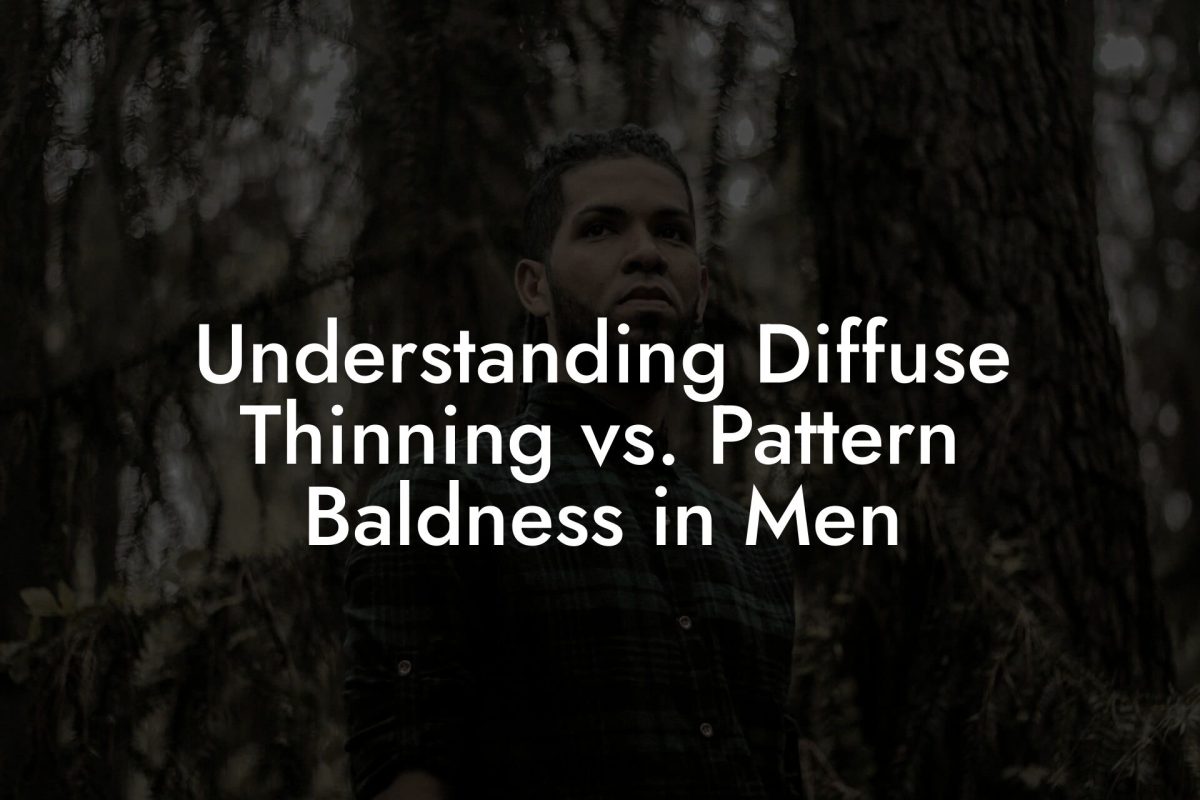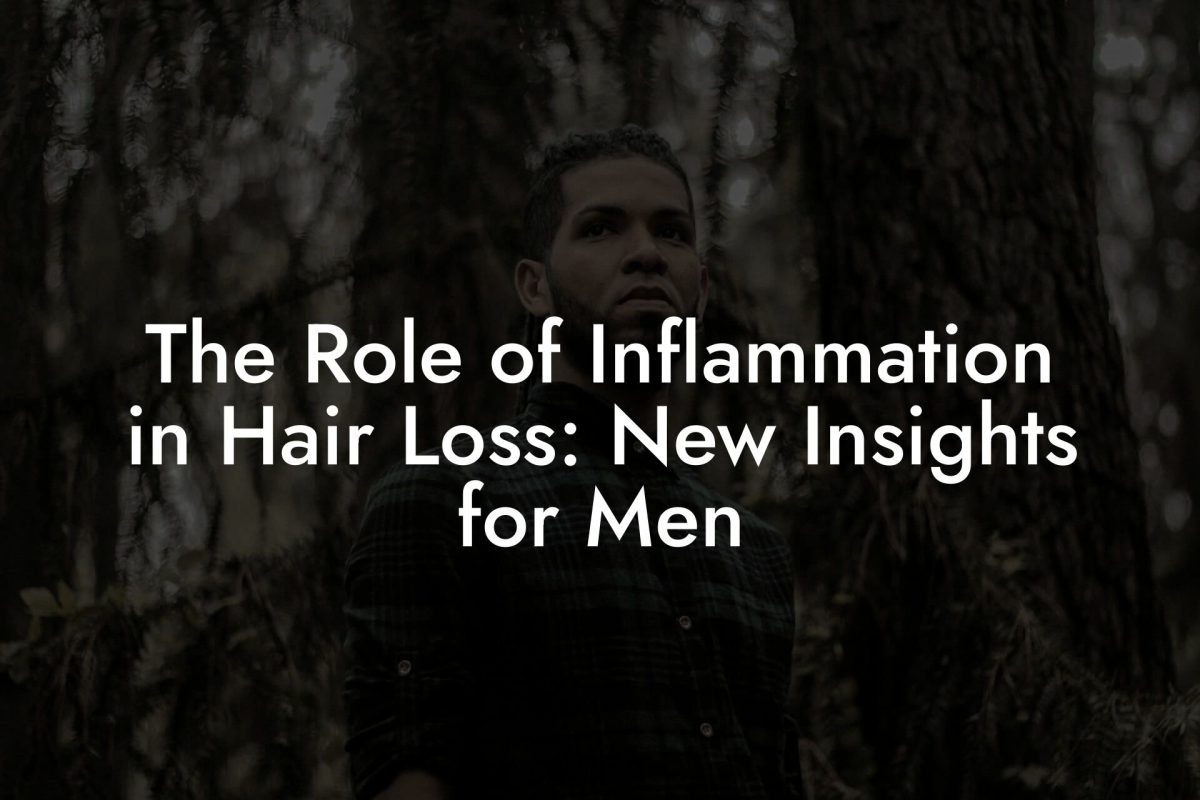Hair Loss Library
Sleep and Hair Regrowth: Can a Good Night’s Rest Save Your Hair?
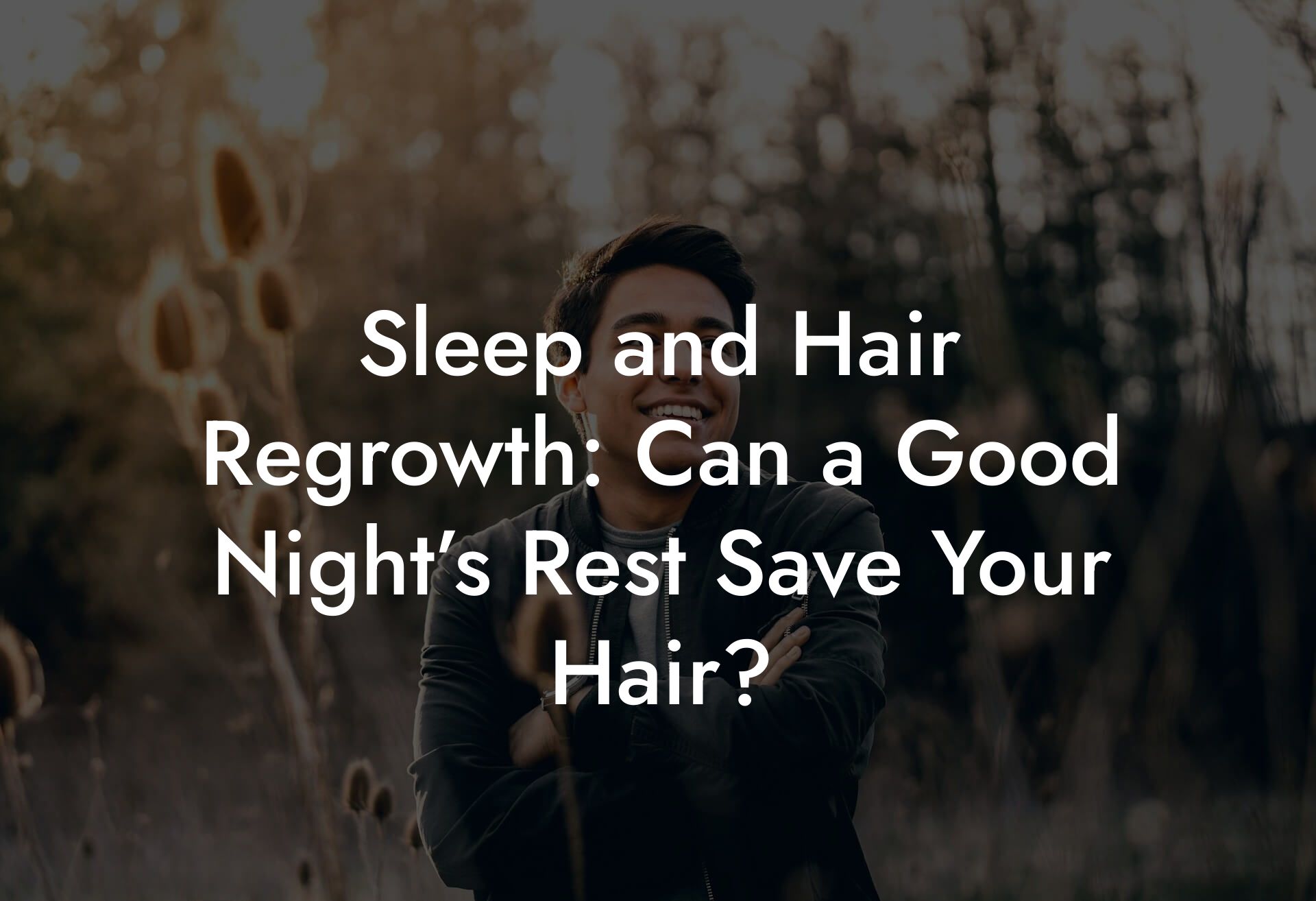
Ever wondered if your midnight Netflix binges are secretly sabotaging your hair growth? Picture this: You’re lying in bed after a long day of battling the perils of modern life, scrolling through memes and contemplating life’s mysteries, and unbeknownst to you, your follicles are on a mission—seeking a rejuvenating boost from that deep, quality sleep. Welcome to the fascinating realm where sleep and hair regrowth intersect, and where a good night’s rest might just be your secret weapon against the dreaded male hair loss dilemma.
Decoding the Sleep and Hair Regrowth Connection
It turns out that your nightly escapades into dreamland do a lot more than just transport you into a world of surreal adventures and occasional bizarre sleep-talk episodes. Quality sleep plays a crucial role in regulating hormones, repairing tissues, and even spurring cell regeneration—all of which are essential for healthy hair growth. For men facing hair loss, understanding the interplay between sleep and hair regrowth could be the key to maintaining that luscious mane or, at the very least, slowing down the balding process.
Dive into the science: during deep sleep, your body releases a blend of growth hormones, including melatonin and even testosterone, both known to influence the health of your hair. While melatonin is primarily famous for beauty sleep (yes, it’s not just for the ladies), testosterone also plays a significant role in hair cycle regulation for men. When you skimp on sleep, your hormonal balance gets thrown off kilter, potentially accelerating hair loss and stalling regrowth. In other words, those extra hours of solid sleep might just be the unsung hero in your quest against thinning hair.
How Sleep Quality Impacts Hair Health
Let’s break it down: your hair goes through various stages—anagen (growth), catagen (transitional), and telogen (resting). A good night’s sleep supports the anagen phase, promoting optimal hair regrowth. Lack of sleep, on the other hand, can leave your body in a constant state of stress, pushing more hairs into the telogen phase prematurely and leading to noticeable shedding.
When sleep is compromised, your cortisol levels—the infamous stress hormone—can skyrocket. Elevated cortisol levels have been linked to a variety of health issues, including a negative impact on hair growth. Picture cortisol as that over-zealous drill sergeant, rattling your hair follicles and preventing them from entering the deep, restorative growth phase. Conversely, achieving that ideal REM and deep sleep cycle minimizes cortisol exposure and paves the way for the release of growth hormones, setting the stage for healthier, fuller hair.
The Hormonal Symphony: Melatonin, Testosterone, and More
The relationship between sleep and hair growth is essentially a symphony conducted by hormones. Melatonin, often hailed as the “hormone of darkness,” isn’t just about regulating sleep; it also has antioxidant properties that help protect hair follicles from damage. Research suggests that melatonin may bolster the hair growth cycle by mitigating oxidative stress and inflammation—both culprits in the hair loss saga.
Meanwhile, testosterone—the hormone often associated with ‘manliness’—is a double-edged sword. While it plays a pivotal role in hair regrowth, its conversion into dihydrotestosterone (DHT) can have adverse effects on hair follicles. Getting the right balance is key. Adequate sleep helps maintain this balance, ensuring that testosterone can work its magic on your hair growth without tipping over into unwelcome DHT territory.
In essence, think of your hormones as a critically orchestrated band. When sleep is plentiful, each member (melatonin, testosterone, and even growth hormone) plays its part flawlessly, harmonizing to promote robust hair health. Without sufficient sleep, however, the band falls out of tune, and your hair might start missing its cue.
Sleep Hygiene: Crafting the Ultimate Bedtime Ritual
Now that we’ve unwrapped the connection between sleep and your hair’s ability to regrow, let’s talk about how you can optimize your slumber to give your follicles the best chance of thriving. Sleep hygiene isn’t just for insomniacs—it’s the secret sauce for anyone looking to harness the regenerative powers of deep sleep. Here are some down-to-earth (and dare we say fun) tips to keep your sleep game on point:
1. Unplug and Wind Down
Yes, we know you love that glow from your smartphone, but blue light exposure can wreak havoc on your circadian rhythm. An hour before bedtime, ditch the screens and opt for a good book, some chill tunes, or even a lighthearted podcast. Your hair and your brain will thank you.
2. Create a Sleep Sanctuary
Transform your bedroom into a fortress of solitude—free from clutter, noise, and any distractions that could interrupt quality sleep. Invest in blackout curtains, a comfy mattress, and maybe even a white noise machine to drown out those attention-seeking background noises.
3. Stick to a Sleep Schedule
Consistency is king. Try to hit the hay and wake up at the same time every day—even on weekends. Your body’s internal clock loves routine, and when it’s in sync, you’re more likely to enjoy the deep, uninterrupted sleep that fuels hair regrowth.
4. Relaxation Techniques That Rock
Whether it’s deep breathing exercises, gentle stretching, or a bit of light yoga, incorporating relaxation techniques into your nighttime routine can help silence the mind’s chatter and set the stage for sleep. Just imagine drifting off while you’re feeling zen and stress-free.
Common Sleep Disruptors and How They Affect Your Mane
Even the most dedicated sleep enthusiasts can sometimes stumble into the realm of sleep disruptors. Let’s unpack some of the culprits and see how they might be stealthily sabotaging your hair regrowth efforts:
Stress and Anxiety
We get it—life is stressful. And chronic stress spikes cortisol levels, throwing your sleep—and subsequently, your hair growth cycle—into chaos. Over time, this can lead to longer telogen phases, resulting in more shedding and slower regrowth. Finding ways to manage stress, be it through meditation, hobbies, or simply knowing when to take a break, is crucial.
Environmental Noise
Whether you’re in the heart of a bustling city or living near a particularly talkative neighbor, environmental noise can disrupt your sleep architecture. Investing in a good pair of earplugs or a white noise machine can help create a more peaceful sleep environment.
Uncomfortable Sleeping Arrangements
If your mattress feels like a brick and your pillow is more lumpy than a bag of trail mix, you’re likely to toss and turn. The quality of your sleep environment directly affects your rest—and by extension, your hair regrowth. Upgrading your bedding might just be the best investment you make for both your sleep and your locks.
Caffeine and Late-Night Snacks
While that late afternoon cup of joe might seem like the perfect energy booster, caffeine can linger in your system and impact your ability to fall asleep. Similarly, heavy meals or spicy snacks right before bed can lead to uncomfortable indigestion, making sleep elusive. Aim for water or herbal teas, and save the heavy meals for earlier in the day.
Sleep and Hair Regrowth Myths: Busted!
There’s no shortage of hair-raising myths surrounding the secrets to hair regrowth. Let’s debunk some of the most persistent myths concerning sleep and its effect on your mane:
Myth 1: “Sleeping More Than 8 Hours Is Always Better”
Not necessarily! While quality sleep is paramount, oversleeping can sometimes indicate underlying health issues or simply mean you’re not aligning with your natural sleep cycle. The goal is balance—enough sleep to allow hormonal harmony without tipping into excessive slumber that might disrupt your circadian rhythm.
Myth 2: “You Can Compensate for Poor Sleep on Weekends”
The idea of “sleep debt” can be tempting, but trying to make up for a week of poor sleep in one weekend is a bit like trying to fix a broken car with duct tape—it might help temporarily, but it won’t address the underlying issue. Consistency throughout the week is more effective for both sleep quality and hair regrowth.
Myth 3: “Sleeping on Your Back Is the Best Way for Hair Growth”
While sleeping on your back might reduce friction that causes hair breakage, personal comfort is key. There’s no one-size-fits-all position for optimal hair regrowth; what matters most is the quality of your sleep. Experiment with different positions and ensure your pillow supports your head ergonomically to minimize unnecessary strain.
Expert Analysis: Mane Matrix’s Take on Sleep and Hair Regrowth
At Mane Matrix, we’ve made it our mission to provide men with expert analysis of their hair loss without the embarrassing or expensive medical consultations. Our advanced research and holistic approach suggest that optimizing sleep quality is a crucial, yet often overlooked, component of a comprehensive hair regrowth strategy. By integrating simple changes in your sleep routine and mitigating stressors that disrupt deep sleep cycles, you not only improve your overall health, but you also foster an environment where hair follicles can flourish.
Our experts have noted a strong correlation between consistent, deep sleep cycles and reduced hair shedding. It turns out that your nightly journey into slumberland triggers cellular repair processes that can extend to your hair follicles, boosting regrowth and even improving hair thickness over time. Such findings underscore why paying attention to your sleep isn’t just about recharging for the next day—it might be the secret ingredient to reclaiming your mane.
Holistic Lifestyle Approaches to Enhance Both Sleep and Hair Regrowth
While good sleep hygiene is paramount, integrating holistic lifestyle practices can double down on your hair regrowth efforts. As a modern man navigating the complexities of career, relationships, and self-care, adopting a multifaceted lifestyle approach can yield dividends for both your sleep quality and your hair’s vitality.
Mindful Movement and Exercise
Regular physical activity not only improves cardiovascular health and reduces stress but also has a direct impact on sleep quality. Whether you prefer hitting the gym, taking a brisk walk, or engaging in a high-energy dance-off in your living room, exercise helps regulate circadian rhythms, thereby promoting deeper sleep cycles. And as we mentioned before, those deep sleep cycles are the unsung heroes behind effective hair regrowth.
Nutritional Boost for Better Sleep and Stronger Hair
What you fuel your body with plays a significant role in both sleep and hair health. A balanced diet rich in proteins, essential vitamins like biotin and vitamin D, minerals, and antioxidants can quickly become your best friend. Foods such as leafy greens, nuts, fatty fish, and even a splash of a citrus fruit in your morning smoothie can work wonders. Incorporate these foods into your diet to support cellular repair during sleep, ensuring your hair follicles get the nutrients they need to grow strong.
Stress Reduction Techniques: More Than Just a Buzzword
Chronic stress is the nemesis of both restful sleep and vibrant hair. Integrating stress-reducing activities into your daily routine—be it meditation, journaling, or even a deliberate unplugging from digital distractions—can lower cortisol levels and promote a more balanced hormonal environment. When stress is kept in check, your body can focus its resources on healing and regeneration, meaning both your sleep and your hair will benefit.
The Role of Technology in Monitoring Sleep and Hair Health
Technology isn’t just for swiping through dating apps or binging the latest series; it’s increasingly becoming a powerful ally in tracking our wellness journey. Numerous apps and wearable devices can monitor your sleep patterns, heart rate variability, and even movement during sleep. These nifty gadgets provide insights into how well you’re sleeping and offer personalized suggestions to improve your rest.
For those concerned about hair loss, these insights can be a game-changer. By correlating sleep data with hair shedding patterns, you can tweak your sleep hygiene and lifestyle to optimize both your slumber and your hair regrowth efforts. In fact, many modern hair loss experts now recommend a holistic approach that includes both biometric tracking and personalized sleep strategies to achieve the best outcomes.
Emerging Treatments and Research: The Future of Hair Regrowth Through Sleep
Research into the connection between sleep and hair regrowth is evolving rapidly. New studies are exploring how sleep-induced biochemical processes can stimulate hair follicle stem cells and promote growth. In addition, advancements in photobiomodulation (light therapy) during sleep have shown promise in enhancing cellular repair and reducing inflammation in the scalp.
Cutting-edge research is also looking at genetic markers and the role of specific sleep phases in triggering hair regeneration pathways. These state-of-the-art investigations are paving the way for innovative treatments that could one day revolutionize the way we approach male hair loss—making a good night’s sleep not only a lifestyle choice but a medically endorsed treatment in the fight against hair loss.
Resources and Community Support: Your Next Steps
Ready to take your sleep and hair regrowth journey to the next level? At Mane Matrix, we’re all about empowering men to reclaim their confidence without the hassle of expensive consultations or awkward medical appointments. Here are some steps to get you started:
1. Connect with Expert Communities
Join online communities and forums where fellow men share their experiences and tips for maximizing sleep quality and hair regrowth. These communities are treasure troves of first-hand advice, inspirational success stories, and the latest news on groundbreaking treatments.
2. Explore Personalized Sleep Analysis Tools
Leverage modern technology with apps and wearable devices that track your sleep patterns in real-time. With a few clicks, you can uncover how your nightly routines impact your overall health and hair regrowth.
3. Consider Holistic Lifestyle Adjustments
From optimizing your nutrition to experimenting with mindfulness and exercise routines, every small change can contribute to improved sleep and a healthier scalp. Remember, sometimes it’s the little things—a consistent bedtime or a quiet moment of meditation—that make the biggest difference.
4. Stay Informed with the Latest Research
Keep an eye on scientific advancements related to sleep and hair regrowth. Subscribe to newsletters, follow experts on social media, and explore articles that can provide insights into the future of hair loss treatments. Knowledge is power, especially when it comes to taking informed steps towards regaining your hair.
Every journey begins with a single step—or in this case, a single good night’s sleep. Embrace the process, connect with others who share your goals, and let each well-rested night be a building block towards not only better sleep but also the reclaiming of your hair’s natural vitality.
Crafting Your Personal Sleep and Hair Regrowth Blueprint
Your journey towards enhanced hair regrowth isn’t about a one-size-fits-all solution; it’s about crafting a tailored blueprint that fits your lifestyle, needs, and ambitions. Here’s a simple guide to help you build your personal plan:
Step 1: Audit Your Sleep Routine
Keep a sleep journal for at least a couple of weeks. Record your bedtime, wake-up time, perceived sleep quality, and any nighttime disturbances. This audit can unearth patterns, helping you pinpoint the aspects of your routine that need tweaking.
Step 2: Set Realistic Hair Growth Goals
Define what success looks like for you—whether it’s reducing hair shedding or visibly regrowing a fuller mane. Clarity on your goals helps create focused strategies, and celebrating small wins can keep you motivated on this journey.
Step 3: Integrate Sleep-Optimizing Habits
From establishing a wind-down ritual to fine-tuning your sleep environment, add habits that promote deep, restorative sleep into your nightly routine. As you tweak these habits, monitor their impact on both your sleep and your hair health.
Step 4: Monitor and Adjust
Use a combination of sleep tracking devices and personal observations to evaluate your progress. If certain habits yield positive results, double down on them. If not, don’t be afraid to experiment and adjust until you find what works best for you.
Your personal blueprint is a living document—evolving with your experiences and the latest insights from the world of sleep science and hair regrowth research. Embrace the journey of self-discovery as you refine your routine, and remember that every effort in the right direction counts.
Frequently Asked Questions: Sleep and Hair Regrowth
Here are some of the most commonly asked questions about how sleep impacts hair regrowth, answered to help you navigate the science and lifestyle strategies behind it all.
1. Can better sleep actually prevent hair loss?
In many cases, yes. Quality sleep supports hormone balance, reduces cortisol levels, and promotes the regenerative processes necessary for hair regrowth—all of which contribute to healthier hair.
2. How much sleep do I really need for optimal hair regrowth?
Most experts suggest that 7-9 hours of uninterrupted, quality sleep per night is ideal. However, individual sleep needs can vary, so it's best to listen to your body and adjust accordingly.
3. Are there specific sleep positions that promote better hair growth?
There isn’t a universal sleep position for hair regrowth. The key is to find a position that allows you to sleep soundly without causing friction or damage to your hair. A supportive pillow and a smooth hair care routine can help mitigate any potential issues.
4. Does the timing of my sleep really affect my hormones?
Absolutely. Your circadian rhythm guides hormone production, and inconsistent sleep schedules can disrupt this natural cycle—leading to imbalances that may adversely affect hair growth.
5. Can technology really help improve my sleep quality?
Yes, wearable devices and sleep tracking apps can offer valuable insights into your sleep patterns, helping you identify areas for improvement and set realistic goals for better sleep and enhanced hair health.
6. It seems like a lot of lifestyle changes—can I really see an improvement in my hair regrowth?
While changes won’t yield overnight miracles, consistently practicing good sleep hygiene along with a balanced lifestyle can lead to noticeable improvements in hair density and overall scalp health over time.
7. Should I consult a specialist about my hair loss, or can improved sleep and lifestyle suffice?
Improved sleep and lifestyle are very important, but if you’re experiencing significant hair loss, it might be wise to seek professional advice. Mane Matrix offers expert analysis in a non-embarrassing, accessible way—perfect for those hesitant about traditional medical consultations.
Your New Path: Sleep Well, Regrow Better
In the grand tapestry of health and wellness, sleep often gets short shrift—seen as the downtime between the hustle of daily life. But as you’ve discovered, those precious hours of rest are far from idle; they’re a critical component in the promising journey of hair regrowth.
Embracing a routine that champions quality sleep, mindful relaxation, and a tailored lifestyle isn’t just about reducing hair loss—it’s about enhancing your overall quality of life. When you prioritize deep, uninterrupted sleep, you’re not only setting the stage for vibrant hair, but you’re also investing in a healthier, more resilient version of yourself.
So, here’s to swapping those late-night scroll sessions for a peaceful, screen-free wind-down and to waking up each day feeling like you’ve already won. Your journey toward a fuller, healthier mane starts with every well-rested night. Trust the process, embrace the science, and let your hair—and your overall wellbeing—reflect the care you invest in your sleep.
Remember, the night is dark, but it holds the promise of a new dawn—one where every deep breath, every moment of quiet reflection, and every hour of quality sleep contributes to a future where your hair regrows with vitality and strength. Sleep well, and watch your hair transform.
If you loved this article... Dive deeper into the world of mens hair loss with our most popular sections. If there is anything you think is missing or anything you would love for us to write about, just give us a shout.
Why Am I Losing Hair? Unpacking the Science Behind Men’s Hair Loss
The Ultimate Guide to Male Pattern Baldness: Causes and Clues
Hormones & Hair: How Testosterone Impacts Hair Loss in Men
Genetics vs. Lifestyle: What’s Really Causing Your Hair Loss?
Stress and Strands: Exploring the Link Between Anxiety and Hair Loss
Decoding Androgenetic Alopecia: What Every Man Needs to Know
How Aging Affects Your Hair: Understanding the Natural Process
The Role of Diet in Hair Health: Nutrients That Prevent Hair Loss
Environmental Factors: How Pollution and Toxins Trigger Hair Loss
Medical Conditions and Hair Loss: What’s Normal and What’s Not?
The Impact of Medications on Men’s Hair: What You Should Ask Your Doctor
Unraveling Scalp Health: Signs Your Scalp Needs Extra Care
Hair Loss Myths Busted: Separating Fact from Fiction
The Role of Inflammation in Hair Loss: New Insights for Men
Sleep and Hair Regrowth: Can a Good Night’s Rest Save Your Hair?
How Smoking and Alcohol Affect Men’s Hair: A Deep Dive
Understanding Diffuse Thinning vs. Pattern Baldness in Men
Innovative Research: The Future of Hair Loss Studies for Men
Spotting Early Signs: How to Identify Hair Loss Before It’s Too Late
Autoimmune Disorders and Hair Loss: What Men Need to Know
The Science Behind Hair Follicle Miniaturization Explained
How Your Lifestyle Choices Impact Your Hair’s Future
Understanding the Hair Growth Cycle: What Every Man Should Know
When to Worry: Recognizing Abnormal Hair Loss Patterns in Men
The Intersection of Genetics and Environment in Male Hair Loss






